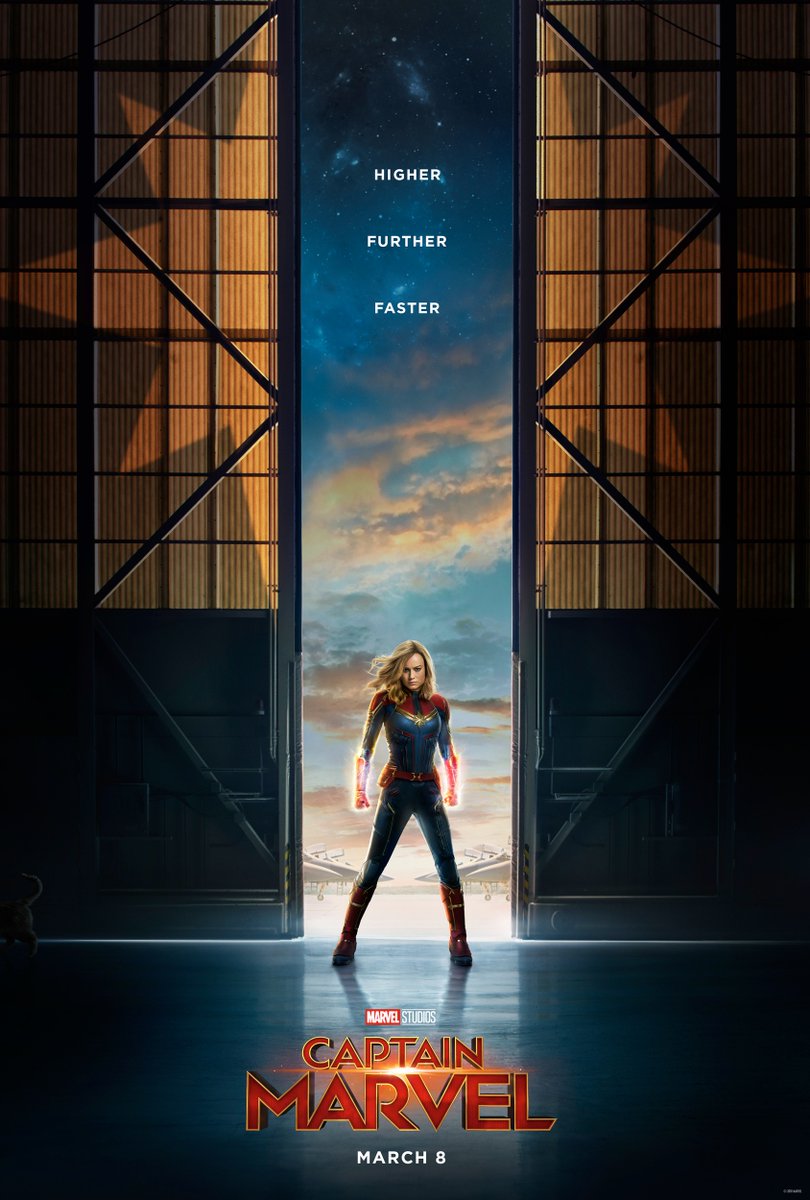‘Captain Marvel’s’ Thematic Feminism Feels Forced
By Zoe Fanzo
“Captain Marvel” made $455 million globally in its opening weekend. Photo courtesy of Flickr.
When the Marvel Cinematic Universe (MCU) launched over a decade ago with 2008’s “Iron Man,” the trajectory of the film industry was forever changed. Eleven years and twenty-one films later, the MCU is a cultural phenomenon and the highest-grossing movie franchise of all time. Many fans consider the franchise to be at its peak, with 2018’s “Black Panther” winning an unprecedented three Academy Awards, and “Avengers: Infinity War” shattering expectations with its standout antagonist, Thanos (Josh Brolin), and devastating cliffhanger. In this charged atmosphere, Marvel fans had been eagerly anticipating “Captain Marvel,” the latest installment of this ever-growing world. But since the film was released on March 8, International Women’s Day, it has become the subject of heated conversation and criticism amongst fans of the franchise.
“Captain Marvel” tells the origin story of U.S. Air Force pilot turned cosmic Kree warrior, Carol Danvers, played by Academy Award winner Brie Larson, as she uncovers the mysteries of her past and ultimately unleashes the full extent of her Infinity Stone-inherited abilities. Set in 1995, the film seeks to impress audiences as it introduces the most powerful hero of the franchise to date. Instead, the film falls victim to frequent and obvious cinematic traps.
Presented in a non-linear format, the plot is jumpy and disconnected. The tension felt by Carol as she uncovers the truth about her past is lost on audiences because as she connects the fragments of her origin, the viewers have already been shown these events in flashbacks.
One of the film’s greatest pitfalls is its tendency to be too “on the nose.” “Captain Marvel” is saturated with the theme of female power, and while that is in no way an unwanted motif, the politics of the film overshadow its ability to tell a fully realized story. The Marvel Cinematic Universe has been such a hit with fans because of its robust storytelling, characterization, and world-building. “Captain Marvel,” however, suffers from cliché and lacks necessary subtext.
In one scene, a biker demeans and cat-calls Carol, who in turn steals his motorcycle. In another, Carol battles with antagonists to the sound of No Doubt’s “Just A Girl,” a painfully obvious choice. She is constantly undermined by male antagonists, but by the end of the film, she discovers that her powers have been stifled by her male mentor and she becomes virtually invincible. Moments like this ultimately feel inauthentic and blatant and her abilities, unfortunately, feel unearned. Carol Danvers feels less like a fleshed-out character, and more like a prop for easily-marketable, watered-down feminism. Fans of the MCU have waited a decade for a female hero to star as the protagonist of her own film, but “Captain Marvel” misses the mark in a huge way.
“Black Panther,” the 18th installment of the MCU, was similarly revolutionary because it featured the MCU’s first black protagonist to star in his own film in the franchise. However, “Black Panther” avoided the pitfalls that “Captain Marvel” fell victim to. “Black Panther” focused on emotional storytelling and deeply developed characters; it was a political statement in itself without having to sacrifice the plot’s integrity. Each character has their own political agenda, and those agendas clash, ultimately making for a durable conflict and intense cinematic climax. “Captain Marvel” lacks this intensity because its thematic feminism feels more obligatory than genuine.
“Captain Marvel” is not an unwatchable film. It has many redemptive aspects, like Samuel L. Jackson’s “de-aged” Nick Fury, Brie Larson’s charming demeanor, and a fascinating post-credit scene which hints at what is to come for the MCU. Self-awareness ultimately weakens the plot and leaves fans yearning for what could have been a solid hero’s journey.

